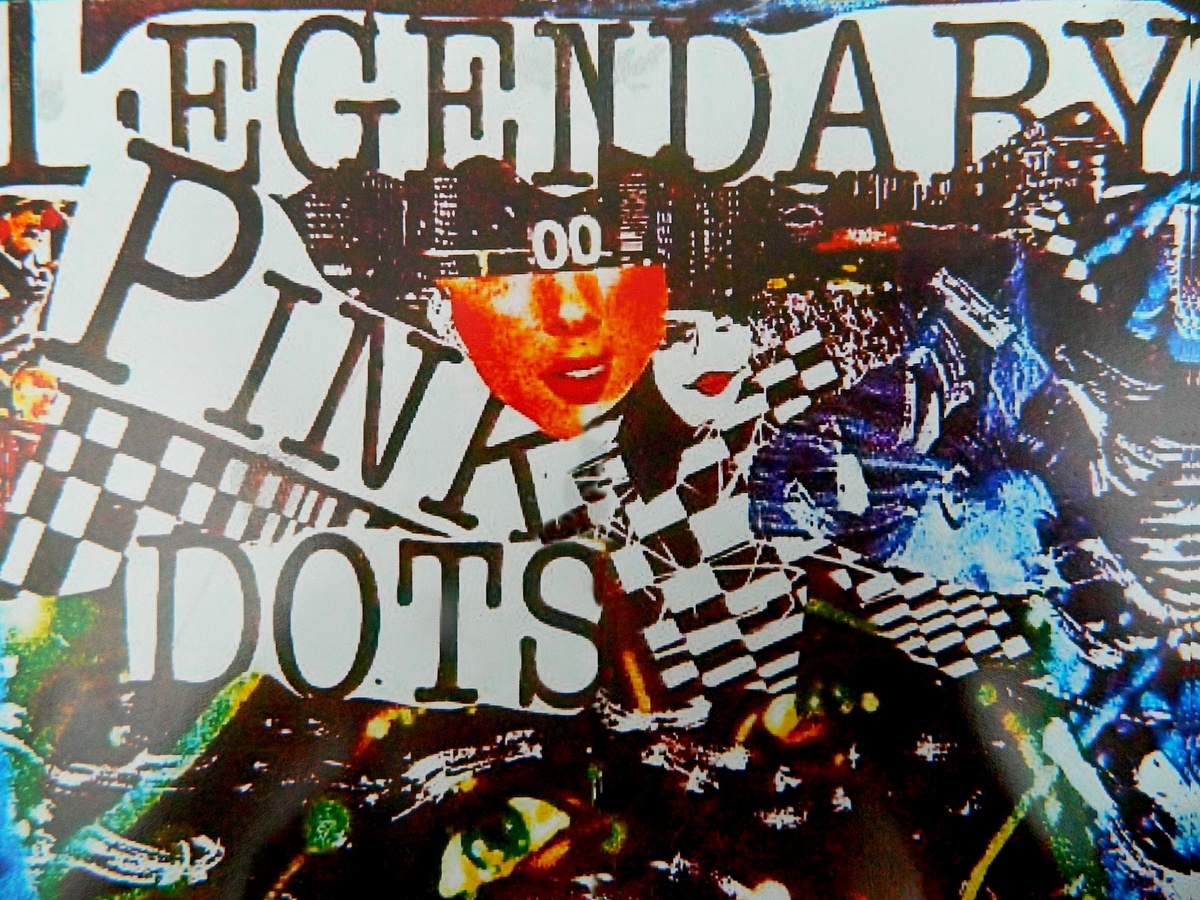
Edward Ka-Spel’s brilliance with The Legendary Pink Dots is to introduce us to isolated characters and then immerse us in their world-view through expansive and mysterious soundscapes. He begins with the most restricted, infinitesimal point of consciousness and then slowly expands it outward towards a state of ‘cosmic consciousness’ (to use the phrase of 1960s psychonauts). Musically, he often follows this template of expansion, with simple melody lines repeating and layering in increased complexity of texture. Much of the LPD’s music is an undertaking to help the listener (and perhaps composer) escape his/her own head. Lyrical phrases, musical motifs, album titles and themes recur across decades, but tonal shifts between albums are slow and subtle. Hopefully, The Legendary Dots Project, like the Residents and Sparks projects before, will provide the keen reader and listener with a giddy entry-point into the Legendary Pink Dots’ musical world. Fulfil the prophecy!
Matt: Awwww, I was afraid of going first just because I’m kinda the one who doesn’t know anything here. But I’ll go for it, with probably the least insightful comment I can make: Chemical Playschool 1 & 2 is really long. It’s just shy of three hours! It was originally put out on two 90 minute cassettes. (That would also explain the “1 & 2” bit, wouldn’t it?) The first time I listened to it, I had to do it in three chunks, just because I got a little overwhelmed. (Second time through, though, I listened to it all in one go.) I had to do a bit of research on the Chemical Playschool series — There’s 15 volumes (to date — though it looks like 5-7 and 14 haven’t been released), and from what it sounds like, they’re what the Residents called “Mop Tapes”, collections of tracks that didn’t make the normal albums, plus alternate takes, mixes, edits and whatnot. That a collection like that is the second album by the Legendary Pink Dots is amusingly perverse. (Clerks: The Animated Series comes to mind, where their second episode was a clip show of the first — of course, ABC didn’t actually AIR the first episode, so it was a clip show where no one had seen the clips.)
I’m digressing a lot, so I should get to the music. In terms of sound, this fits alongside Only Dreaming, (which makes sense) and it shares some titles with that album as well. “Frosty”, “Phallus Dei”, “Soma Bath”, “Waiting for the Call/You ‘n’ Me” all appear here as well. I liked those songs a lot on Only Dreaming, and I like them here. I also liked “Temper Temper” quite a bit, but I really love the Dots’ pop songs. There’s actually quite a few similarities to other things in this song – but I can’t put my finger on what. There’s so much that seems… familiar, but I can’t figure out what exactly it’s similar to. It’s a really great song, though.
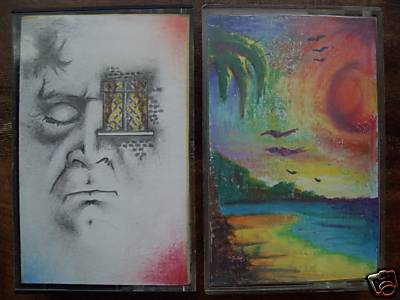
I think if there is a problem with Chemical Playschool 1 & 2 it IS its length. I can’t really think of anything that isn’t worthy of being released — but since there’s three hours of it to digest, a lot of it gets lost — “Temper Temper” only stood out to me on the second go through, and I know that as I listen to the album more and more, there’s going to be more favorites, but only having listened a few times, it’s just this big mountain of stuff that’s kind of intimidating. I find Ween’s The Pod kind of the same — though it’s all awesome songs, I rarely sit down and listen to the album because it’s so long and I just get overwhelmed…. and that’s only 76 minutes. I guess what I’m saying here is that when it comes to long albums, I’m just a big baby. So, I guess if you’re a big baby like me, don’t start with Chemical Playschool 1 & 2, even though the music on it is indeed great. (Now, let’s hear what the smart kids have to say.)
Adam: So, I’m working from The Legendary Pink Dots’ Bandcamp page here, but it seems that in the band’s formative days, two cassettes were released. The first, Only Dreaming, we have already reviewed here. It contains solid ditties appropriate for 7-inch release and more ambient connective tracks. The second, Chemical Playschool, was longer. A musical experience of over an hour. The compilation Chemical Playschool 1 & 2 will be discussed here. It contains both of the aforementioned cassettes within its mammoth 3-hour run time. Basically, it encapsulates the Dots’ early career. Musically, the template established by Only Dreaming is preserved, which makes sense, since all of these songs would have been devised around about the same time, with the same line-up. A repeated keyboard motif provides the fragile backbone for many of the tracks, over which synths and keyboards whip up a storm that sometimes obscures or masks Ka-Spel’s bitter vocals. The melodies are simple and addictive, but the individual sounds themselves more troubling – squelchy and wheedling, sometimes almost anticipating the (admittedly nostalgic) glitchcore genre by some decades. To these ears, the music shares a certain grubby sparkle with glitchcore duo Matmos. Elsewhere, the album recalls early Cure with its murky bursts of funk bass and taut, claustrophobic production. The track ‘Legacy’ is a particular example of this, sounding like a cut from 1979’s Three Imaginary Boys. Moments of industrial, military rigor belong to the same regime as Joy Division’s 1980 album Closer.
However, for all of this name checking, the album is often untraceable, some tracks sounding like nothing less than funereal dirges from an animal planet. However, the land that inspires the lyrics is quite clearly small-minded, squalid, urban Britain. Fragments of sampled citizens’ dogmatic love for queen and country pepper ‘Peace Krime 1’ while elsewhere Ka-Spel sings of spitting on a Britannia that “wins too many fucking wars”. The political sentiment is radical punk, but the music tends towards the dismal, woozy and intermittently pretty, rather than the urgent or heavy. As with Only Dreaming, what impresses in Ka-Spel’s lyrics, is his ability to move between the personal and the political with ease. The bedroom, the street, the House of Commons, are all interconnected. Domestic discord may not be directly attributed to sinister state machinations, but neither are they disconnected. To make a serious point, rape in marriage was still legal in 1981 in Britain when the album was released, so the advice in ‘Phallus Dei’ for the female victim to lay back and think of her wedding vows, holds serious, political bitterness. The vision of Britain presented in Chemical Playschool 1 & 2 is one a blissed-out bourgeois Devon in ‘Ideal Home’, of grimy gutters in the magnificent ‘Waiting for the Call/ You ‘n’ Me’ (as praised in the last review) and of imperial squalor in ‘Caligula’. These visions are presented with a sardonic wistfulness by Ka-Spel, at once railing against the horrors of Britain under the conservatives, while dreaming (with a touch of irony) of a better future. One is reminded of William Blake‘s Songs of Innocence and Experience, where the cruelty of an unfeeling government and urban poverty is placed in contrast with visionary utopian images of bucolic innocence, that might exist only to be dreamed of. Sometimes the album, for all its grubbiness, lurches into a Bowie-like glam dereliction. The bug-eyed urban paranoia of the Berlin trilogy – anxious, while also being queer and funky, like the novels of William Burroughs.
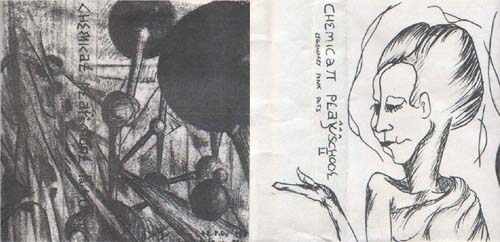
An album of 3-hours will almost inevitable drag and there isn’t quite enough variation on Chemical Playschool 1 & 2 to stop the experience from becoming a little relentless and interminable. By the end of its running time, it feels like liberation to escape… just as it must have been for Ka-Spel and friends to escape Britain for Amsterdam in 1984. That said, the sheer length of the work gives the Dots room for play and experimentation. I might be mistaken, but ‘Redeemed’ sounds like the rather lovely ‘Defeated’ played backwards and it still sounds mournful. ‘Stars on Sunday’ is a condensed quick-fire play-through of some of the album’s best tracks, like the Residents would later do with Uncle Willie’s Highly Opinionated Guide To The Residents and Our Tired, Our Poor, Our Huddled Masses. Also recommended is ‘Onward’, which sounds like what I would imagine an underwater hospital for merpeople to sound like and the ambient final track ‘Moaners-Passover’, which anticipates the sinister Brian Eno-like music that the Dots would craft later in their career.
So, Chemical Playschool 1 & 2 is a trek and an investment, but it contains a wealth of pleasing, memorable songs (see those praised in the review for Only Dreaming) and if you feel like losing your brain in a city of coruscating electronic blips, it is certainly worth the journey.
P.S. Due to the sheer size of Chemical Playschool 1 & 2 I found myself unable to articulate all of its facets. As such, I also produced a page of doodles and a collage to better express by experience of the album.
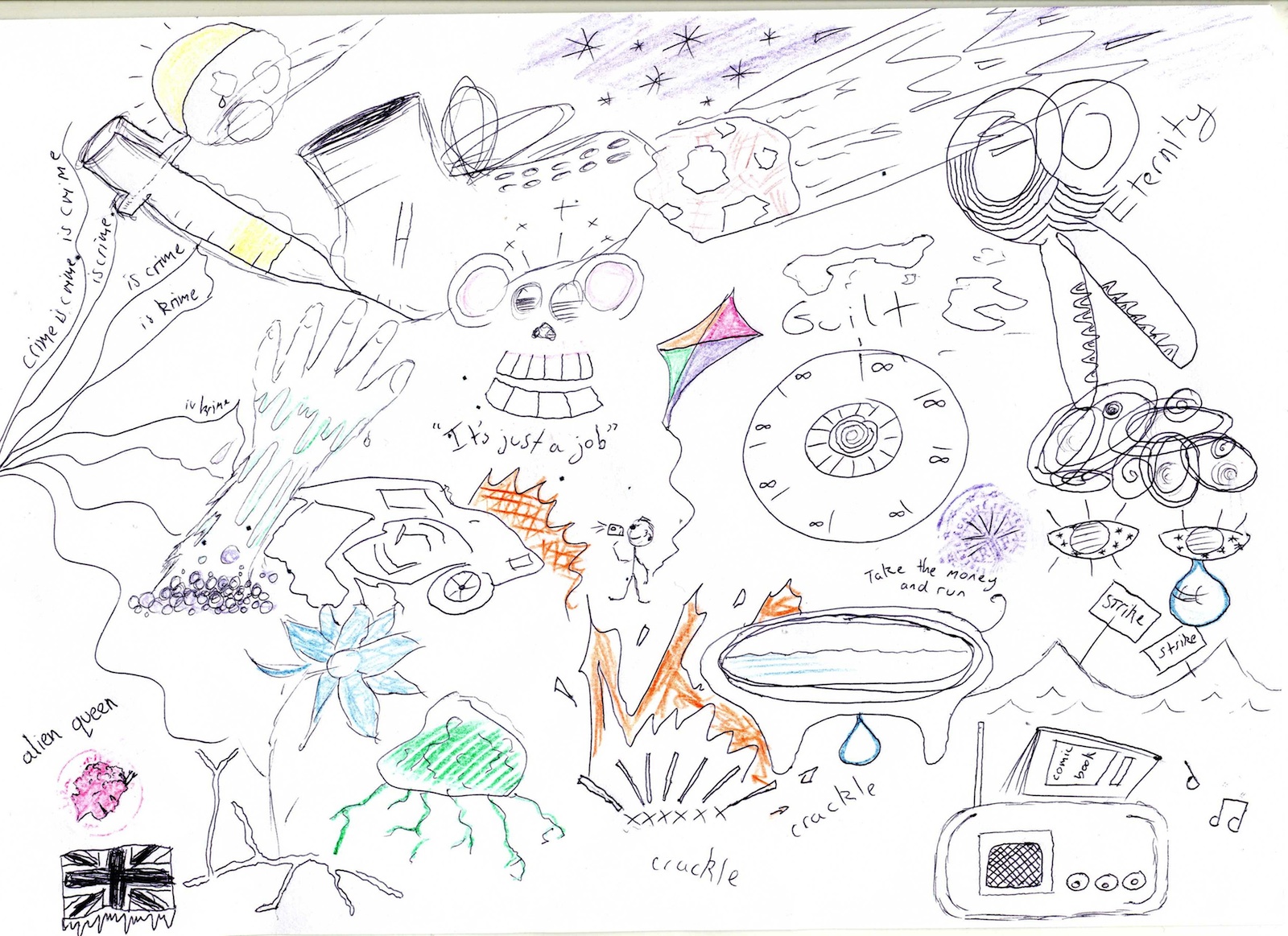
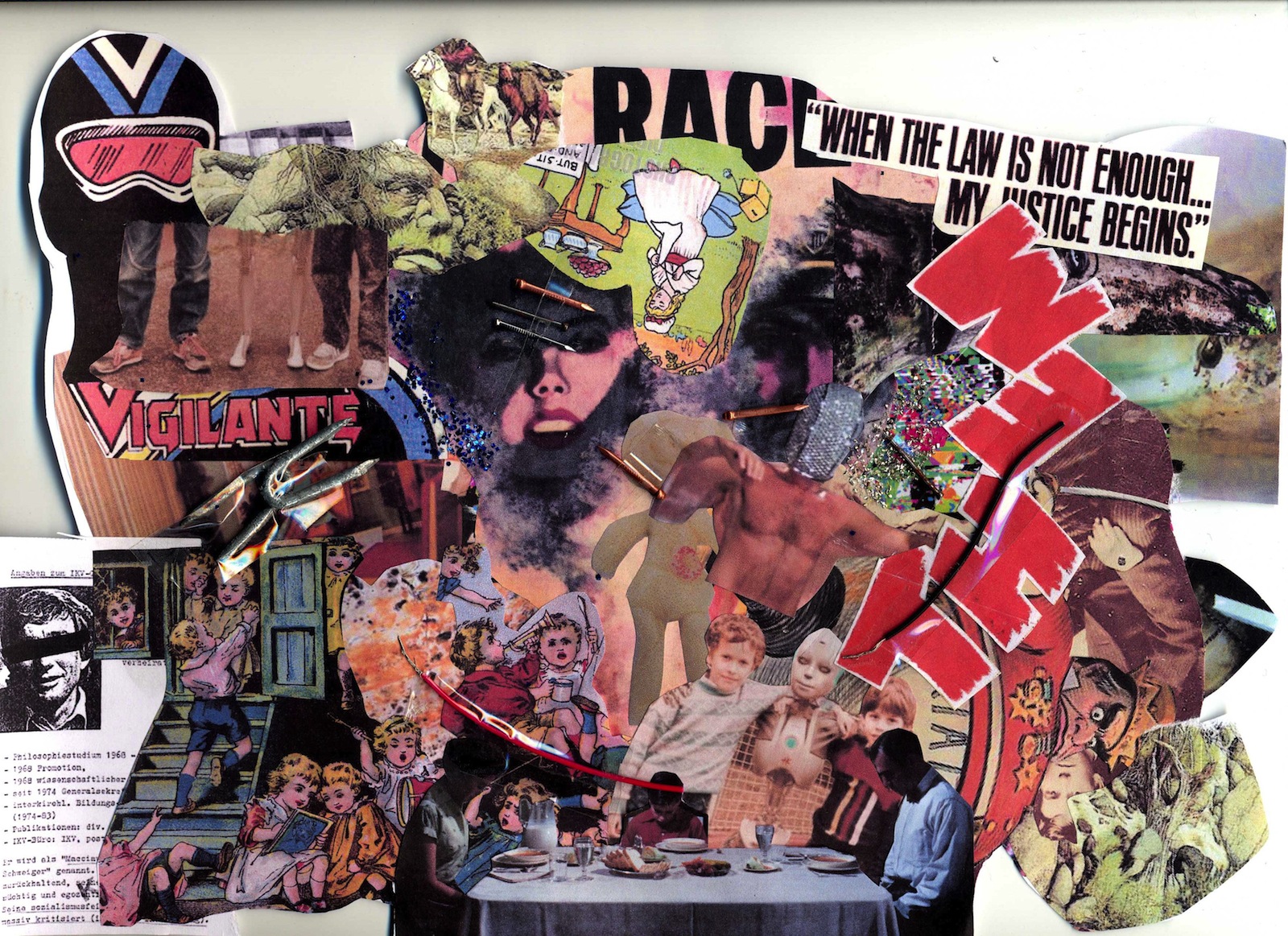
Tom: I have to comment that this wasn’t the easiest proposition to get the measure of! Clocking in at just less than three hours and 41 tracks – 10 of which are to be found on Only Dreaming, Chemical Playschool 1 & 2 – is a sprawling behemoth if ever there was one. It also includes a piece which seems to be ‘Defeated’ played backwards, reflected in its title: ‘detaefeD’. Some of these versions are barely different; some are fizzier, with a little more pep, with clearer vocals in particular. I am unsure how necessary this all is; I did personally get attached to the hazy murk of OD. However, ‘Soma Bath’ is fleshed out further; ‘Phallus Dei’ stands out even more than before in its clearer form. ‘Break Day’ is well sequenced after ‘Witch Hunt’, a 44-second fragment of impressionistic menace – with a Matthew Hopkins scenario dotted with gadabout synths.
Then, for one of the points of departure from the first album: ‘Break Down’. This is a storming 8 minutes and 26 seconds of utter bedlam; a truly electronic, psychedelic pottage. It possesses an out-there alien quality that matches the likes of Sun Ra or post-punk pioneers This Heat. This would have fitted well on the Peel show, either side of deepest dub and spindly indie tracks. This is Pointillist, Brutalist and uncompromising; a throbbing and human electric odyssey. ‘Ideal Home’ includes vocoderised tones characteristic of much of this album. There is ‘Red Castles’, with that vocoder sound that was tangible in much pop and disco of this era, including the work of operatives as various as ELO, Zapp and Neil Young.
However, I am not sure I ‘enjoyed’ this album in its totality quite as much as Only Dreaming; there were longueurs, as you might expect, given its colossal scope. ‘Dolls’ House’ is an initially purposeful tune with a typically off-kilter familial theme, but is considerably over-extended at seven minutes. ‘Louder from Six’ has a relevant Cold War subject of phone tapping and espionage, but could have more decisively unnerved with its electro bleeps if kept to two minutes or so. Ambient instrumental ‘Stand Firm, Damian’ doesn’t quite jolt and intrigue as did the previous album’s ‘It Rots Your Liver’. ‘Dying for the Emperor’ illustrates a general problem with this marathon release: one or two promising elements or ideas, over-egged. To fit its “shoot-’em-up” lyrical themes, this track has distinctly non-pop tones that evoke late 1970s arcade games. More concision, as exemplified by The Residents’ Commercial Album would have aided this as a listening experience. ‘Mpnmep Cptaha’ is a clever exploration of an artist’s close-to-home inspiration, with his depicted smile addressing him; but it doesn’t really evoke HP Lovecraft or JG Ballard’s uncanny 1976 short story ‘The Smile’, but more The Smurfs – or Joe Meek’s Globbots, to be charitable – with those pitch-shifted vocals at the end. ‘Sensory Deprivation’ has droll enough interrogations of stock phrases – “Love is blind, needs a stick” – but its tune is customary, even ‘mainstream’. This doesn’t really satisfy as much as Robyn Hitchcock’s unconventional songs from the same era.
‘Stars on Sunday [Starch on Sunday]’ is surely a reference to Dutch euro-disco ‘combo’ Starsound, who had a #2 hit with ‘Stars on 45’ in April 1981, setting off an infestation of the charts by retro baloney, as the learned music writer Marcello Carlin has stated:
By August, just as the first phase of New Pop was attempting to burrow its way into the mainstream, the singles chart was in real danger of suffocation by nostalgic, click-track medleys, all of which served not to move music forward, but reassure slightly-too-old listeners that the new stuff wasn’t worth bothering with.
‘Stars on 45’ is shite; an anodyne compendium of Archies and Beatles re-treads with unchanging, gormless handclaps throughout and smug self-publicity at the start. The LPDs’ track displays oblique mockery of the ‘Stars on 45’ epidemic, with many snatches of previous LPD tunes ineptly stitched together amid dappled filters, effects and minor new morsels. It is strange that they felt they needed 11 minutes and 29 seconds; in nearly a quarter of the time, the Portsmouth Sinfonia achieved the requisite detonation of retro sterility with their ‘Classical Muddly’, and created humane, funny, satirical music into the bargain.
But I shouldn’t be overly harsh on this record; it is often bloody good. ‘Peace Krime 1’ includes inventive sampling, making public vox pops about the monarchy sound absurd, anticipating certain Chris Morris antics. After Only Dreaming’s political edge, we are ‘treated’ to the voice of Margaret Thatcher herself, talking about the IRA hunger strikes: “Crime is crime is crime”. This is a serious and seriously woozy brew of shimmering soundscapes and foolish, stubborn political pronouncements; clearly conveying EK-S’s unease at a seemingly diseased Britain. While the sampling of real-life figures and the news had been done before – by Tom Clay, The Beatles and Simon and Garfunkel, at least, more than a decade previously – the Legendary Pink Dots use the samples to represent repugnant actuality infiltrating their typical dream-like languor.
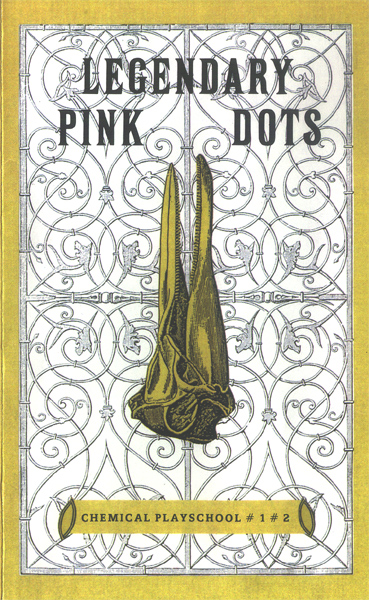 ‘Apocalypse Then’ is another “last day” tale, fusing childish proclamations with synth dread; dissolving into Radiophonic swirls for its lovely closing section, the drum machine having faded away entirely by 3:22. To paraphrase a recent piece of copy by Daniel Spicer in The Wire magazine, it sounds like the Clangers being frogmarched into the last scene of Carnival of Souls by Brigadier Lethbridge-Stewart. Likewise, the detouring ‘Brill’ canters off into the realms of the syncopated kids’ tune. ‘Donna’s Blitzed Again’ has a lavish yet submerged four-note refrain, following the queasy slow waltz of ‘Professional’. The instrumental ‘Ampitheatre Shuffle’ has a wistful, gently searching tune, the sort you heard a lot of British television in the 1970s and early ’80s. I am wont to imagine that a song from 1981 called ‘City Ghosts’ is likely to be good, and it is: a Gothic ode to nostalgia, fantasy and the pursuit of inner space. ‘The Wedding’ is a downbeat, post-wedding-mortem: “that’s what I gave you: ash for ashes, dust for dust”. ‘Caligula’ is one of the great songs about the hubris of the power-mad, rivalling Van Der Graaf Generator’s ‘The Emperor in His War Room’ in its direct attack: “I just met Caligula on a peninsular. It’s so very insular. A nutter! A nutter from the gutter. He’s got power and he uses it.” In typical absurdist LPD style, a lion eats Caligula’s seashell “victims”, dies of indigestion and Caligula peddles the benefits of Alka-Seltzer at the close!
‘Apocalypse Then’ is another “last day” tale, fusing childish proclamations with synth dread; dissolving into Radiophonic swirls for its lovely closing section, the drum machine having faded away entirely by 3:22. To paraphrase a recent piece of copy by Daniel Spicer in The Wire magazine, it sounds like the Clangers being frogmarched into the last scene of Carnival of Souls by Brigadier Lethbridge-Stewart. Likewise, the detouring ‘Brill’ canters off into the realms of the syncopated kids’ tune. ‘Donna’s Blitzed Again’ has a lavish yet submerged four-note refrain, following the queasy slow waltz of ‘Professional’. The instrumental ‘Ampitheatre Shuffle’ has a wistful, gently searching tune, the sort you heard a lot of British television in the 1970s and early ’80s. I am wont to imagine that a song from 1981 called ‘City Ghosts’ is likely to be good, and it is: a Gothic ode to nostalgia, fantasy and the pursuit of inner space. ‘The Wedding’ is a downbeat, post-wedding-mortem: “that’s what I gave you: ash for ashes, dust for dust”. ‘Caligula’ is one of the great songs about the hubris of the power-mad, rivalling Van Der Graaf Generator’s ‘The Emperor in His War Room’ in its direct attack: “I just met Caligula on a peninsular. It’s so very insular. A nutter! A nutter from the gutter. He’s got power and he uses it.” In typical absurdist LPD style, a lion eats Caligula’s seashell “victims”, dies of indigestion and Caligula peddles the benefits of Alka-Seltzer at the close!
But, for me, ‘Legacy’ is the highlight. This is a reflective indie pop song, drenched in synths that are imbued with urgency and purpose. It is the glum confessional of a solitary, seemingly concerning regrets over a past relationship and subsequent inertia: “Just wish I could turn the clock back” / “Watch a lot of TV these days […] Nothing left to dream about, got no aspirations. Thought about a hobby but I got no patience…” It is significant that the subject ‘I’ is so often omitted from his sentences.
There are further cultural references in this album; indeed, ‘Legacy’ refers to the popular music standard ‘You Always Hurt the One You Love’, most famously recorded by the Mills Brothers in 1944; a song whose title has rightly become an idiom in English. ‘Ideal Home’ alone packs in Hydes, Jekylls, Apollo, Adonis and Zeus. ‘Red Castles’ plays around with the title phrase of the bizarre, divisive children’s game ‘king of the castle’. Maybe Ka-Spel had seen the surreal, tower-block set 1977 HTV children’s drama, King of the Castle, written by Bob Baker and Dave Martin, the creators of Doctor Who’s K9. The incredibly low-key ‘Ampitheatre 1’ references the idiom ‘Keeping up with the Joneses’; Ka-Spel is scornful of obsessive social climbing: “Found a hand in the sand where they covered up the remnants. Not enough to show the Joneses but should look good on our wall. Not too clean.”
It would seem churlish to be too critical of a release that contains far more great material than most albums. While I appreciate the Dadaist collage techniques that the LPDs are clearly tapping into, CP 1&2 doesn’t quite have the shock of the new that I felt OD had, but it does pump further indispensable blood into the LPD corpus – and contains a few startling advances.










